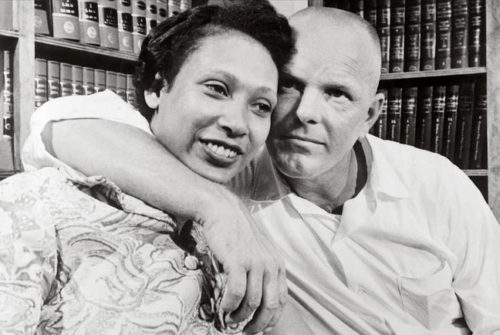This Day in History: Richard and Mildred Loving Plead Guilty to the Crime of Interracial Marriage
Share
Explore Our Galleries
Breaking News!
Today's news and culture by Black and other reporters in the Black and mainstream media.
Ways to Support ABHM?

Photograph of Mildred Loving and Richard Loving dated June 12, 1967
By the Equal Justice Initiative
After marrying in Washington, D.C., in 1958, Richard and Mildred Loving returned to their native Caroline County, Virginia, to build a home and start a family. Their union was a criminal act in Virginia because Richard was white, Mildred was black, and the state’s Racial Integrity Act, passed in 1924, criminalized interracial marriage.
On January 6, 1959, the Lovings pleaded guilty to both charges. After their conviction and release, the Lovings fought the law that had branded their love a crime and, on June 12, 1967, won a United States Supreme Court decision that would change the nation.
Read more here
Read about the film adaption of their life here
Read more Breaking News here









Comments Are Welcome
Note: We moderate submissions in order to create a space for meaningful dialogue, a space where museum visitors – adults and youth –– can exchange informed, thoughtful, and relevant comments that add value to our exhibits.
Racial slurs, personal attacks, obscenity, profanity, and SHOUTING do not meet the above standard. Such comments are posted in the exhibit Hateful Speech. Commercial promotions, impersonations, and incoherent comments likewise fail to meet our goals, so will not be posted. Submissions longer than 120 words will be shortened.
See our full Comments Policy here.